- Home
- Paul Christopher
Templar Cross Page 11
Templar Cross Read online
Page 11
Somewhere along the way they would have started stripping off their clothes, the worst thing they could do since it would only accelerate the evaporation of their sweat, hastening their dehydration. Their tongues would thicken, their lips would crack and their noses would begin to bleed.
Eventually they’d stop perspiring and fever would set in. As the cells in their brains dried out convulsions and hallucinations would begin. Trapped within the skull the cerebral fluid would actually begin to boil. Soon after that the kidneys and other major organs would begin to fail one after the other, leading quickly to toxemia, plasma loss, coma and eventually death.
It would be an inexorable, inevitable, excruciating way to die. Somewhere in the rolling sands around him, probably mummified, were the remains of those four men, anonymous and long forgotten, their mission lost to eternity.
Somehow, as Holliday plodded on hour after hour, it became terribly important that he find out the names of the crew of Your Heart’s Desire, and he vowed to do just that if he somehow managed to get out of his own predicament. Failed or not, the mission and the men who flew it deserved their small place in history.
On the thirteenth day of their journey the landscape began to change; the rolling dunes gave way to smaller, more sculpted waves of sand, broken with hard crust desert and stretches of barren, hard, rocky plateaus with very little sand. They traveled faster on the plains and traveled longer, sometimes far into the numbingly cold nights. There was a tension in the air; Holliday had seen it often enough on forced marches—they were nearing their destination. It couldn’t be soon enough for him; Peggy had been missing for more than three weeks now and Holliday was beginning to fear terribly for her safety. Rafi was almost frantic with worry.
On the fourteenth day the landscape changed again. The broken plain gave way to a massive escarpment rising above the flatland at least two thousand feet, a huge, apparently impenetrable wall directly in front of them. As they approached it throughout that day Holliday began to pick out sandy scars in the face of the escarpment, the mouths of wadis, or ancient riverbeds forming sloping approaches to the high wall.
Toward the end of the day they reached one of these and barely slowed as they climbed up the escarpment along the winding trail of sand. Holliday tried to imagine what this place would have looked like when man first walked here a hundred thousand years ago. Probably paradise; in huge areas of Libya and Egypt the weather ran in cycles, drying and wetting, the desert expanding and contracting like a gigantic lung. As recently as the time of the pharaohs much of the landscape they were traveling through had been home to waving fields of grain, tumbling rivers and streams and forests and veldts alive with herds of wandering animals and their predators. The riverbed they were working their way along was easily as wide as the Mississippi and had probably been much faster. It was all very hard to imagine.
They reached the top of the escarpment and left the sand-filled riverbed as darkness fell, and by the time they pitched camp for the night they had traveled a good distance along it. The next day was spent moving across the top of the plateau, traveling more west than south now. Every now and again they passed the abandoned ruins of mud- and salt-brick villages and once something that had to have been an old colonial fort, Italian or French. At noon they actually crossed a road lined with electrical transmission towers and in late afternoon they crossed another.
By Holliday’s rough calculations they had traveled at least six hundred miles from the wreckage of Your Heart’s Desire. That put them closer to the border of Algeria, Niger, and Chad than anywhere else. From one frying pan into another, he thought. Algeria was a corrupt semidictatorship and a hotbed of ethnic Berber al-Qaeda terrorists, Niger was in the midst of a Tuareg insurrection and Chad had their UFDD rebel alliance. Who was it who said that God had forgotten Africa? A very bad place for an American to be, worse for a woman and suicide for an Israeli. Getting out of this was going to be some piece of work.
The sixteenth day turned out to be the last. Late in the morning they reached another, much narrower wadi and instead of crossing it they turned abruptly, following it almost due north. By midafternoon the wadi petered out and they climbed up out of the ancient watercourse. They were at the edge of the escarpment, two thousand feet above a giant tract of rolling desert that reached the horizon. The small caravan came to a momentary stop.
To their left, along a precipitous goat track that angled down the face of the cliff, there was a sand rift between the main escarpment and a long extrusion of sandstone. It looked like the space between a person’s thumb and forefinger. From where Holliday sat perched on his camel the sandy rift looked to be ten or twelve miles long. Big enough to hide an entire army if you wanted. To the right, in the far distance, was a large blot of green shimmering like a mirage in the light of the burning sun. Something that looked suspiciously like a paved road ran directly through it, angling along at the foot of the escarpment.
Civilization.
Holliday felt a single small surge of hope and exhilaration. He saw what the men from Your Heart’s Desire had not: a way out of their predicament. He yelled to the man on the camel in front of him.
“Hey!”
The man in the Tuareg robes turned in his saddle, the lethal automatic rifle clutched in his hands. When he spoke his muffled voice was harsh and dry; he was a man who had spent his life in the parched desert.
“Matha tureed?” the Tuareg said, dark eyes peering out over the masklike veil over the lower half of his face. Holliday pointed toward the oasis in the distance. The turbaned man looked.
“Where are we?” Holliday said, his arm extended, finger still pointing. The man called to his companion on the camel ahead of him and the other Tuareg turned in his own saddle and replied in a long string of guttural Tamasheq. The man in front of Holliday nodded, then turned again.
“Wadi el Agial, sadiqi. Zinchechra. Germa.”
Whatever the hell that meant.
They edged down the goat path for several hours, the unprotected drop only a gut-clenching foot or so away from their camels’ slapping hooves, every lurching, swaying step threatening to be their last. Holliday had never had a problem with heights, but after twenty minutes or so he was forced to look the other way and finally simply shut his eyes against the nauseating vertigo.
They reached the bottom at about four o’clock and spent another hour crossing the flat hardpan of the little valley, heading for the fingerlike extension of the escarpment that separated them from the expanse of desert beyond.
The surroundings included scrub bushes, thornbushes, the occasional desert beetle, and a great deal of hard, crusted white sand. Then they began to see small herds of goats being herded by Tuareg men in their traditional turban, and some children playing. Eventually they saw what appeared to be a permanent camp of some kind in the distance.
The closer they got, the larger the encampment became. The goat-and-camel-skin tents were much larger than the pup-sized ones they and their captors used and there were thornbush enclosures of goats and picket lines of camels everywhere. Taking a quick count as they passed, Holliday estimated that there were at least five hundred men in the camp. Interestingly the location of the tents and corrals was such that except at high noon it would be perpetually in the shadow of either the escarpment or its extension, making it next to invisible from the air. Up-to-date tactics for an ancient people against a modern enemy: the airplane and the satellite.
At the far side of the camp the group stopped in front of a moderate-sized tent and gestured for Holliday and Rafi to dismount. One of the armed men gave a harsh command and rapped the camels on the nose with a little stick. The animals obediently dropped down on the knees of their front legs and Rafi and Holliday climbed down. The guard gestured to the tent opening and they went into the stifling interior.
It was luxurious in comparison to what they’d seen in the last two weeks. The walls were set out with heavy pillows and the floors were covered with woven rug
s in a dozen different vivid patterns. A small cast iron grill stood in the middle of the tent and there was a ventilation hole in the ceiling to let out the smoke. Their guard turned and spoke.
“Sa arje’o halan,” he said.
Holliday nodded even though he didn’t know what had been said. So did Rafi. The man in the turban and robe turned on his sandaled heel and walked out of the tent. Outside they heard an exchange and then the sound of the camels moving off. Both Holliday and Rafi dropped down onto the pillows.
“He said he’d be right back, I think,” muttered Rafi. Holliday nodded, exhausted.
“Two weeks on a camel. My fanny’s turned to stone,” he grunted.
“I’d hate to tell you what mine feels like,” said Rafi, sighing, then leaning back and closing his eyes. “What did our blue friend tell you when we were up on the plateau?”
“Something like: Wadi el Agial, sadiqi. Zinchechra. Germa,” answered Holliday, trying to remember. “Any idea what it means?”
“I know exactly what it means,” said Rafi, opening his eyes and sitting up. There was excitement in his voice. “Wadi el Agial means Valley of Life, sadiqi means my friend, Zinchechra is the name of an ancient mythical castle and Germa is the capital of an almost forgotten kingdom. I know precisely where we are: this is Virgil’s Garamanthia, the warrior kingdom of the Garamathes. This is one of the most important archaeological sites in the world.”
“It feels like the ends of the earth,” said Holliday.
“You don’t get it, do you?” Rafi said, almost laughing.
“’Fraid not,” said Holliday, unmoving on his pillows. His voice was filled with sleep.
“This explains a lot,” said the young archaeologist. “Draw a straight line a thousand miles east of here and you reach the Nile River at Karnak, where the historical Imhotep appears, ‘Out of the setting sun,’ as the ancient texts say. That’s usually taken to mean he came from the land of death, from Anubis, god of the underworld. Some other stories have him as one of the sons of Ra, the sun itself. It’s a variation on all the religious mumbojumbo about the birth of Christ. On top of that, Imhotep’s mythological mother is said to have been Hathor, the Warrior Queen.
“The point is there was no desert in those days, at least not here. Imhotep, or certainly his real father, could have made the trip easily. It fits! Imhotep, the real one, isn’t buried somewhere in Egypt. He came home to die. He came here. This is the location of Imhotep’s tomb, or at least someone thinks so!”
There was the slow sound of applause from the entrance to the tent. Startled, both Holliday and Rafi looked up. A man stood beside the tent flap, clapping. He was in his early forties, good-looking, fit and tanned with thick, black, very curly hair. He was clean shaven. He wore slightly tinted glasses and was dressed in a white Archaeologists Like It Dirty T-shirt, faded blue jeans and a pair of black Nike Air Hiking Boots.
“An excellent theory, Dr. Wanounou, and you’re quite right; someone does think that this is the location of Imhotep’s tomb. Me. Not only do I think it—I know it for a fact. You and Colonel Holliday arrived at an exciting time.” The man’s accent in English was vaguely British, maybe an affectation.
“You seem to know quite a bit about us,” said Holliday coldly. There was something not quite right about the man in the T-shirt.
“Of course.” The man smiled pleasantly. “For instance, I know you teach history at West Point Military Academy, lost your eye in a freak accident in Afghanistan and have recently rather annoyed the intelligence arm of the Holy See. I know that Dr. Wanounou’s Ph.D. thesis was entitled The Development, Significance and Function of Tool-Making and the Evolution of the Blacksmith’s Craft in the Land of Israel during the Iron Age I Period, because I both read and enjoyed it. I also know that he was involved with your last contretemps in Jerusalem and suffered a terrible beating because of it.”
He hadn’t got all that from a quick conversation with Emil Abdul Tidyman, thought Holliday.
“Who the hell are you?” Rafi asked.
“Forgive me,” said the man in the T-shirt. “Where are my manners? The press knows me as Mustafa Ahmed Ben Halim. My real name is Dr. Rafik Alhazred. I am an archaeologist like yourself, among other things.” Alhazred smiled. “I am also the leader of the Brotherhood of Isis and the man responsible for kidnapping the delightful Miss Peggy Blackstock.”
14
“Why did you take Peggy?” Rafi demanded. “She’s no part of your agenda.”
“She was there, her bad luck. She could have been killed,” answered Rafik Alhazred. “And what do you know about my agenda?”
“You’re a terrorist. What’s there to know?” Holliday shrugged.
“Most terrorists are lunatics of one stripe or another,” said Alhazred. “They generally have issues about the size of their genitalia. Scratch a terrorist and you’ll find a small penis. Any graduate student in psychology can tell you that. Hitler, Stalin, bin Laden; why do you think he blew up the World Trade Center, America’s phallic symbol? He had weenie issues. Even George Bush was in a pissing contest with his father.”
“George Bush wasn’t a terrorist. He was the president of the United States,” answered Holliday.
“Your patriotism is exemplary, Colonel, but Bush the younger terrorized his own people and used Homeland Security to do it, much like Hitler used the Gestapo. The Fuhrer had Himmler. Bush Jr. had Dick Cheney.
“A little simplistic, don’t you think?” Holliday asked. Come on now; a philosophical argument about what constitutes a terrorist while sitting in a camel-skin tent in the middle of the Sahara Desert? It was insane.
“We could go on with this argument forever,” said Rafi. “But it’s got nothing to do with Peggy.”
“Miss Blackstock went on at length about her relationship with you and yours with her. It was touching. I’m sorry to have caused undue anxiety.”
“What have you done with her?” Holliday asked.
“She’s quite safe, at least for the moment,” said Alhazred. “Unlike her companions, all of whom have gone to meet their maker, I’m afraid.”
“You murdered a bunch of priests?” Holliday said.
“I defended myself,” answered Alhazred. “And they were no more priests than I am a colonel.”
“Then who were they?”
“Brother Charles-Étienne Brasseur, the leader of the expedition, was a longtime operative for La Sapinière, French Vatican Intelligence. He was the only real archaeologist in the group. Even Miss Blackstock was suspicious of that; there wasn’t even a graduate student on the so-called team.”
“Then who were they and what were they doing with Brasseur?” Rafi said.
“They were mercenaries hired from the ranks of true believers, like the men of Propaganda Due or Opus Dei. They all had previous military experience.”
“How do you know that?” Holliday asked.
“Well, in the first place they were armed,” responded Alhazred. “When we eventually made contact they opened fire on us with automatic weapons, mostly Beretta AR-70s. They killed three of my men before they had a chance to return fire.” He paused. “Hardly the pious behavior of priests.” Alhazred pulled a crumpled package of Marlboros out of his back pocket, tapped one out and lit it with a paper match. He blew a plume of smoke up at the roof of the tent. “Later we found out that they had all been in the Département protection sécurité, the storm trooper arm of the National Front Party in France and the First ‘Draghi’ desert unit of the Italian R.A.O., the Reggimento Ricognizione e Acquisizione Obiettivi—in other words, commandos.”
“You’re saying they were on a military mission?” Holliday asked.
“Thieves in the night, Colonel. They came for Your Heart’s Desire and the gold it contained; Imhotep’s tomb was just an excuse for the expedition.”
“What about Brasseur’s theory?”
“Bogus; Brasseur was a medievalist. He was interested in the Templars’ role at Damietta certainly, but the Imho
tep theory was an invention of Centro d’informazione pro Deo, Vatican Intelligence in Rome. Brasseur discovered the wartime journals of a man named Father Andrew Felix Morion. He was the one who set up the removal of the gold for Rauff in 1944.”
“You seem to know a lot about the Catholic Church,” said Rafi.
“Why shouldn’t I?” Alhazred said, smiling coldly. “I was raised in it.”
“You’re not a Muslim?” Rafi asked, surprised.
“I’ve never heard of a Catholic terrorist, either,” said Holliday.
“A terrorist is as a terrorist does. I was born in Beirut, Lebanon. My father was native Lebanese, my mother was French Canadian of Lebanese descent. They were both doctors. They were working at Nabatieh, a Palestinian refugee camp, in July of 1974 when the Israelis bombed it to rubble.” He looked across the tent at Rafi. “Your people, Dr. Wanounou. They murdered my parents for no reason. I was two years old at the time. I have no memory of my parents. I know them only from a few photos and the stories my uncle told me. They were stolen from me the way Walter Rauff stole the Jewish gold on that plane, the way they would have stolen it from me if they’d had the opportunity. As I said, a terrorist is as a terrorist does. I’m no terrorist, gentlemen. I’m just a man taking his revenge.”
“No political motivation at all?” Holliday asked.
“Only the politics of thievery, other people taking other people’s things. My Tuareg friends here having their land stolen away for lunatic projects, their cultural history stolen just as surely. Did you know that the Germa site has never been excavated by Libyan archaeologists? French, American, British, yes, colonial powers all. But Libyans? Not on your life.”

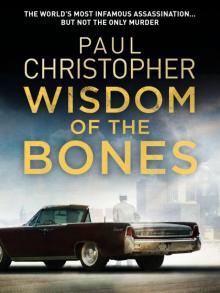 Wisdom of the Bones
Wisdom of the Bones The House of Special Purpose
The House of Special Purpose The Second Assassin
The Second Assassin Michelangelo's Notebook
Michelangelo's Notebook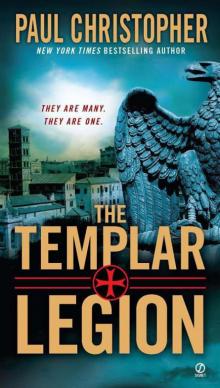 Templar Legion
Templar Legion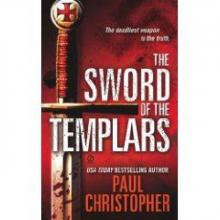 The Sword of the Templars t-1
The Sword of the Templars t-1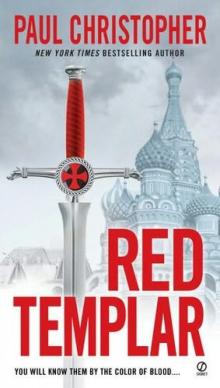 Red Templar
Red Templar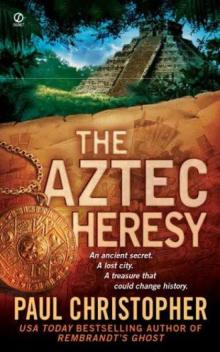 The Aztec Heresy
The Aztec Heresy The Templar Legion
The Templar Legion Rembrandt's Ghost
Rembrandt's Ghost Sword of the Templars
Sword of the Templars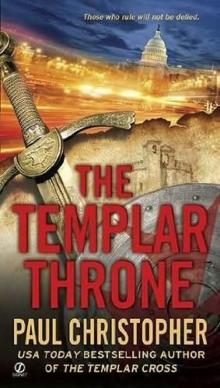 The Templar throne t-3
The Templar throne t-3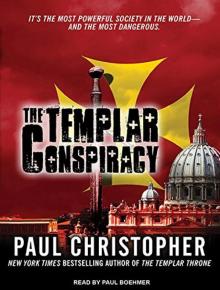 The Templar Conspiracy
The Templar Conspiracy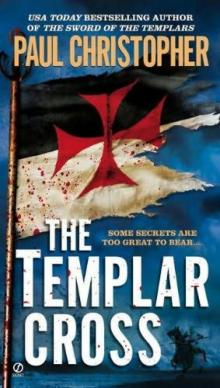 The Templar Cross t-2
The Templar Cross t-2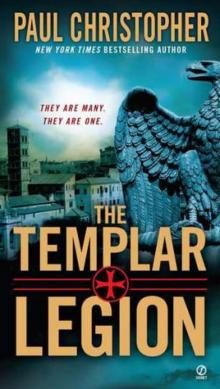 The Templar Legion t-5
The Templar Legion t-5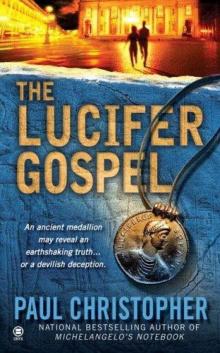 The Lucifer Gospel
The Lucifer Gospel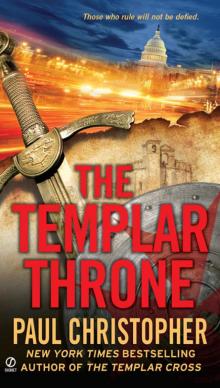 Templar Throne
Templar Throne Michelangelo_s Notebook fr-1
Michelangelo_s Notebook fr-1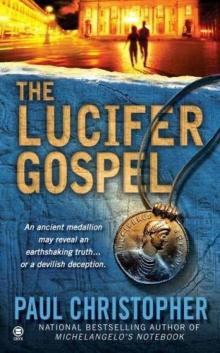 The Lucifer Gospel fr-2
The Lucifer Gospel fr-2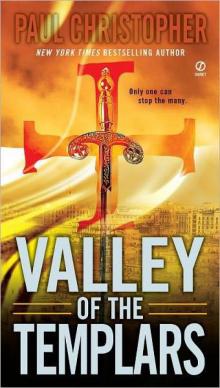 Valley of the Templars ts-7
Valley of the Templars ts-7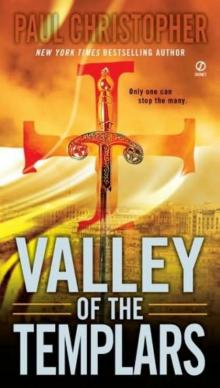 Valley of the Templars
Valley of the Templars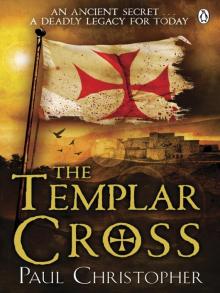 Templar Cross
Templar Cross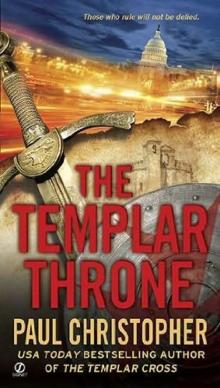 The Templar Throne
The Templar Throne The Templar Cross
The Templar Cross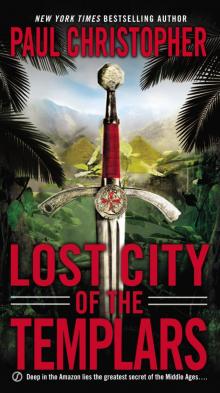 Lost City of the Templars
Lost City of the Templars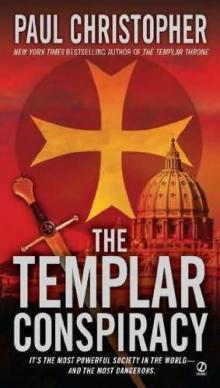 The Templar conspiracy t-4
The Templar conspiracy t-4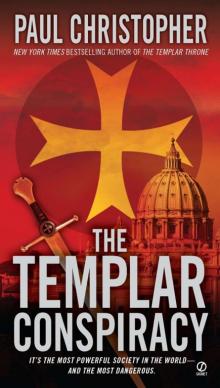 Templar Conspiracy
Templar Conspiracy